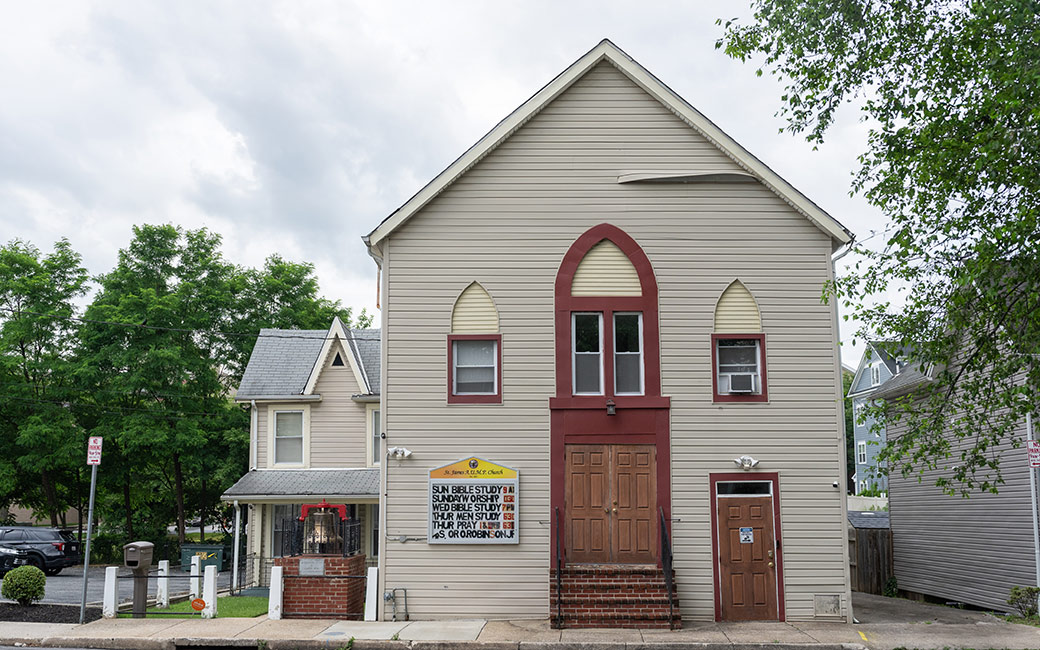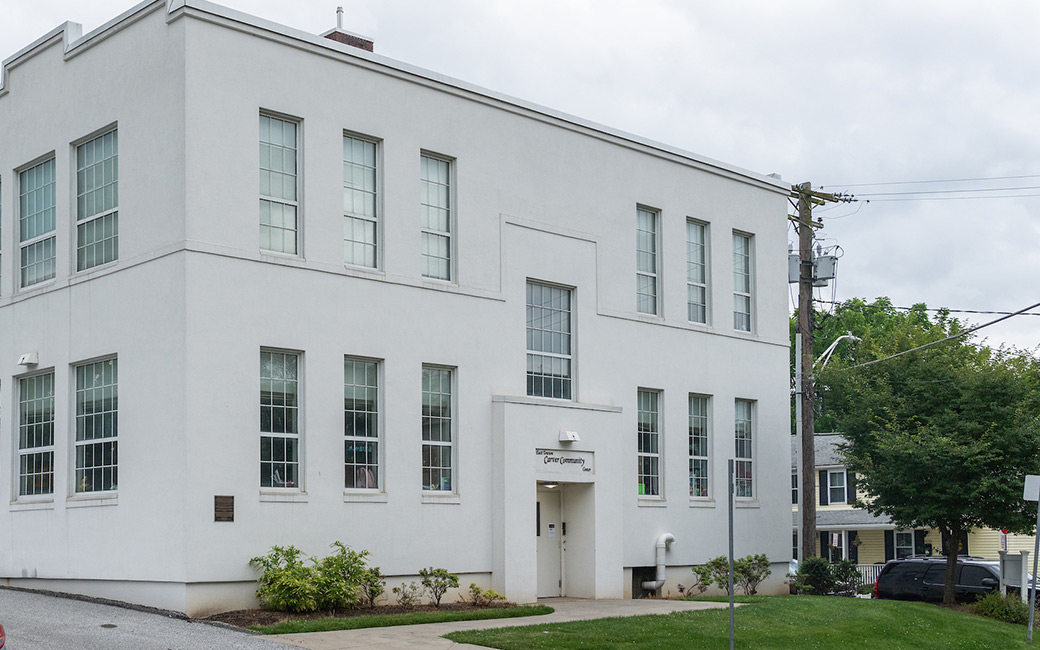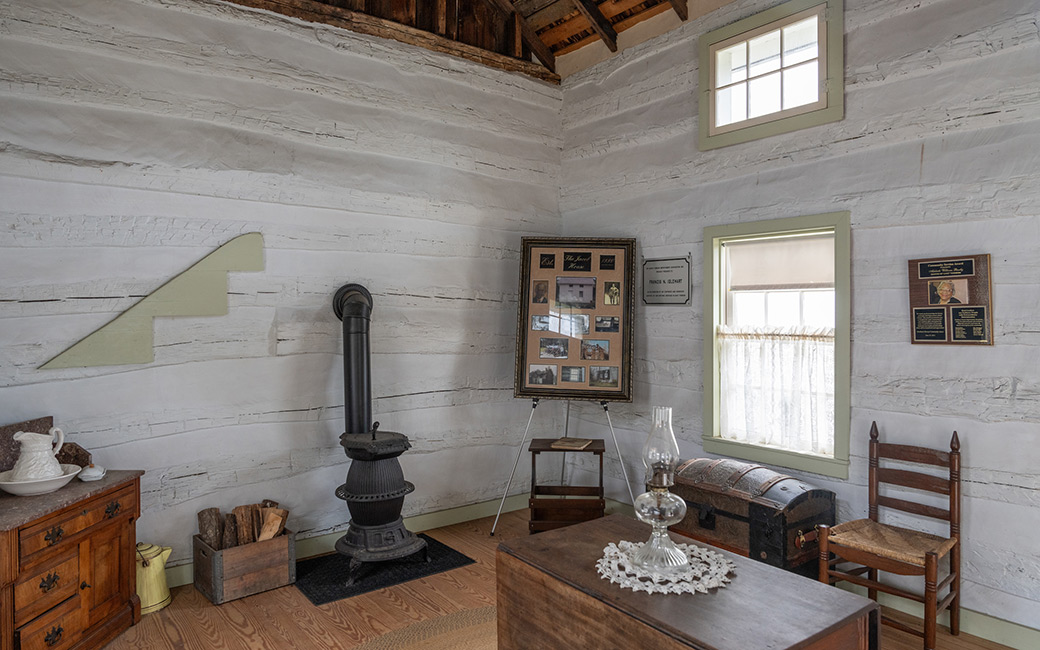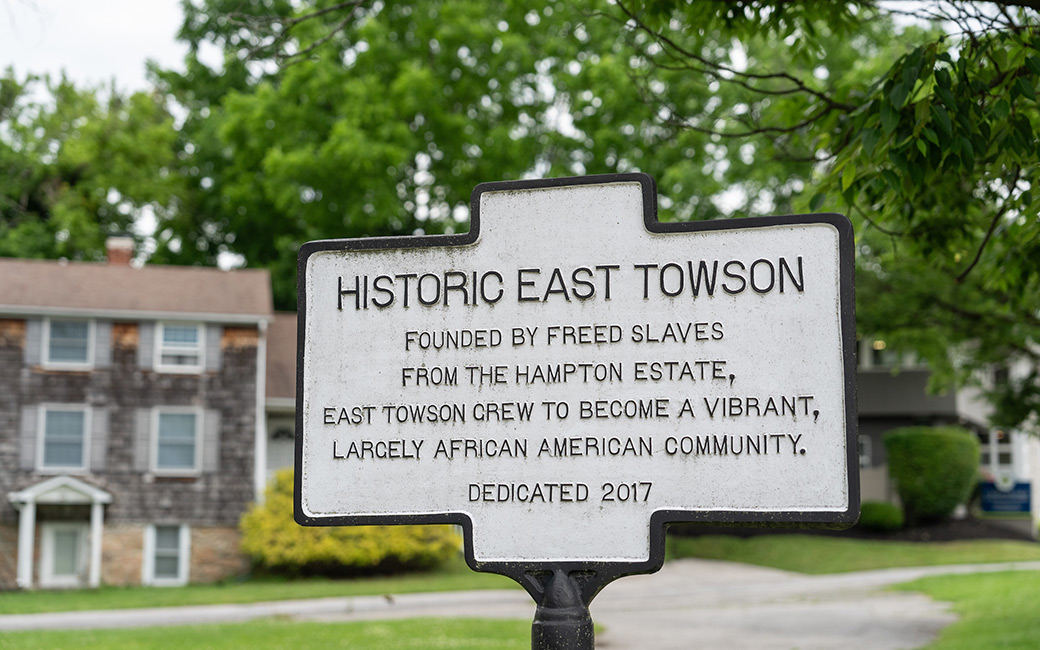
New trail aims to preserve local history
TU faculty, students are helping create a three-mile greenway connecting a Towson community to the plantation where its ancestors were once enslaved
By Pamela Gorsuch on June 17, 2024
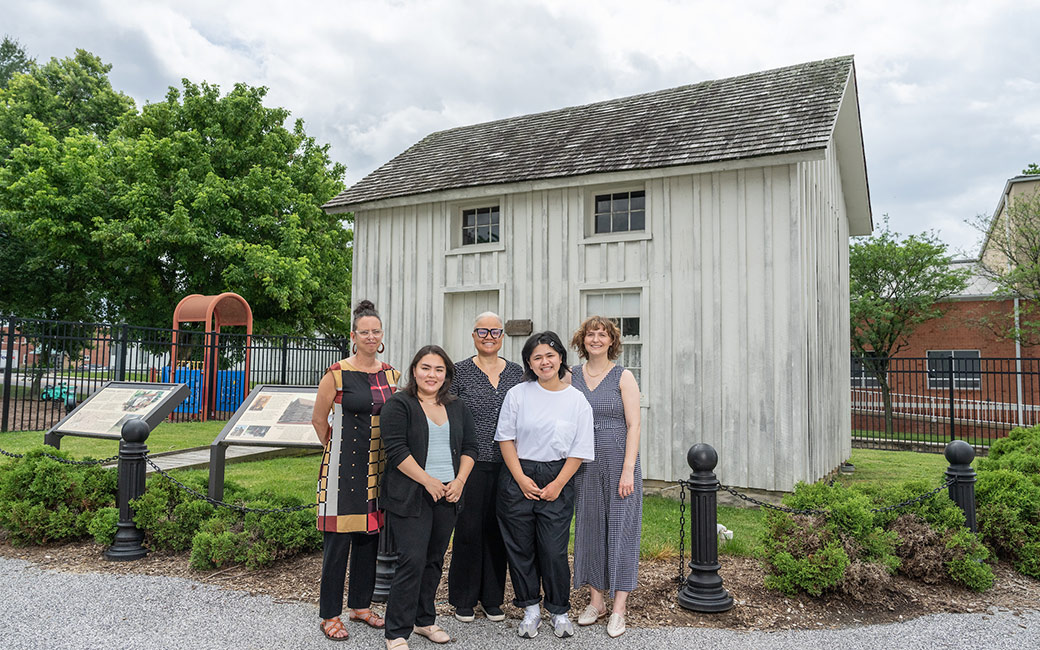
In 1829, hundreds of newly freed enslaved people left the Hampton Plantation in search of a better life. They traveled two miles south and set up residence in a valley, forming Baltimore County’s oldest African American community. Slavery wouldn’t be abolished in Maryland for another 35 years.
The community they established is Historic East Towson, and it’s located less than a mile from TU. Many of its current residents are direct descendants of the town founders. Now, university faculty and students are helping preserve their history.
They’re working under the direction of Nancy Goldring, a seventh-generation resident and current president of the Northeast Towson Improvement Association, Inc. (NeTIA). After seeing decades of redevelopment chip away at her community’s land, Goldring formulated a plan. She wanted to preserve the neighborhood’s historical landmarks and share the legacy of Historic East Towson through a dedicated green space. That’s how the Road to Freedom Trail was born.
Goldring aims to build a three-mile pedestrian and cycling greenway connecting the Historic East Towson community and 12 related landmarks to the Hampton Plantation where its founders lived in bondage. The path will offer county residents opportunities for recreation and reflection: It will start at the plantation’s stone slave quarters before winding past a historic school, cemetery, several churches and a 19th-century log cabin once home to a person newly freed from slavery. These long-standing landmarks hold considerable significance but are often unrecognized by passersby.
“It’s history hidden in plain sight,” Goldring says. “So many Towson residents have no idea there was once a 25,000-acre plantation with 500–600 slaves right here. They have no idea Baltimore County’s first African American landowner established a thriving community here. This story needs to be told.”
That’s where Towson University’s College of Liberal Arts comes in. English professors Zosha Stuckey and Carrie Grant run the Grantwriting in Valued Environments (GIVE) Project, which helps English and professional writing students get real-world experience by supporting small non-profit organizations around Baltimore. Over the past three years, GIVE interns and graduate assistants have helped NeTIA secure grants, develop web content and establish a social media presence to expand awareness of the community and strengthen support for the trail.
“GIVE is known nationally for a model of being embedded within organizations,” Stuckey says. “We listen deeply in order to attempt to understand the needs of the community so we can have a sustained positive impact.”
Since GIVE started 10 years ago, it has helped partners raise more than $800,000 in grants. NeTIA has won a $10,000 Maryland Humanities SHINE grant and been awarded a federal earmark for the planning, engineering and design of the Road to Freedom Trail. The project has also been accepted into the National Parks Service's Rails, Trails and Conservation Assistance Program, which will provide technical support and planning to help make the trail a reality. Meanwhile, GIVE interns like Jillian Samaniego '25 continue to create content to help NeTIA build public support, gaining professional experience along the way.
“It’s opened my eyes to how writing can be used for social change and historic preservation,” Samaniego says. “Now I have experience writing grants, performing research, crafting social media content and more. It’s created a lot of possibilities.”
It’s also facilitated discoveries. During their research, GIVE interns learned about a special connection between TU and the Hampton Plantation, which at its height contained 25,000 acres and the largest private home in the U.S. When plantation owner Capt. Charles Ridgely died, he left the estate to his nephew, future governor of Maryland Charles Carnan Ridgely, with the stipulation that a new home be built for his widow. That home? TU’s Auburn House.
While faculty and students continue to learn more about the community’s origins, Goldring is collecting oral histories of living descendants. Together, they’re building a clearer picture of a trailblazing community and its deep connections to Towson’s history.
“It’s fascinating how different pieces continue to emerge,” Goldring says. “It just keeps unfolding.”
Learn more
Dive Into History
Learn more about Historic East Towson on the community’s website and Instagram. Take a virtual tour of the Road to Freedom Trail to explore the history of our area and the landmarks along the trail.
Celebrate Juneteenth with TU
Monday, June 17 from 11 a.m. to 3 p.m.: Join students, faculty and staff in the Paws Pavilion for food trucks and an arts & crafts sale.
Tuesday, June 18 from noon to 1:30 p.m.: Attend a virtual seminar on black generational wealth. Use the Zoom link to join. The meeting ID is 951 2266 7840 and the passcode is 02489947.
Wednesday, June 19: TU is closed in honor of Juneteenth.
